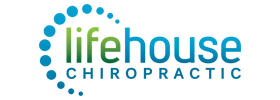New Year's Resolutions Solutions by Chiropractor Janna House in London

New Year’s Resolutions…probably you either love them or leave them…and even if you love them, most of us leave them within a few weeks.
Setting New Year’s resolutions in London is a tradition that has been around for thousands of years. The Romans named the first month of their year after Janus, a mythical king, the god of beginnings and the guardian of doors and entrances. With two faces, Janus could look back on past events and forward to the future. Janus became the ancient symbol for resolutions.
What to Resolve…
For those of us who make New Year’s Resolutions, they often fit into one of these ten categories:
- Spend more time with family and friends.
- Get in better shape.
- Lose weight.
- Quit smoking.
- Enjoy life more.
- Drink less.
- Get out of debt.
- Learn something new.
- Help others.
- Get organized.
LifeHouse Chiropractic wants you to make your resolutions S.M.A.R.T – specific, measurable, actionable, reasonable, and time-based. For lots of great and helpful ideas, check out this ultimate guide to New Year’s resolutions at http://greatist.com/happiness/ultimate-goal-guide-new-year.
If you are the kind of person who likes to make New Year’s Resolutions, then there are some things you can do to increase the likelihood that you will follow through on keeping your resolutions.
Be certain of your why.
You have to know why you want to make your resolutions. It’s not good enough, for example, to say I want to eat more vegetables. You need to know why you want to eat more vegetables…to feel better, to look better, to reduce the risk of cancer and some chronic diseases, to lose weight, or whatever else you choose.
Here’s the how.
- You need to learn to fail graciously.
Let’s face it, we are not going to be successful at fulfilling our resolutions 100% of the time. Be okay with that. Instead of saying, well, I failed at keeping my resolution today or this week, I might as well not even try anymore, say, I wasn’t able to follow through on my resolution today, or this week, but I’m going to pick myself back up and get on track, and I’m going to keep doing that. I’m not going to give up.
- Get checked and adjusted by your chiropractor.
A well-aligned spine means the brain-body connection is optimized for better function, for example, it will promote better digestion, strength, fitness, flexibility, mood, and organization. (See previous blog posts on the Power of the Adjustment.)
- Clean up your system.
Your body and brain function optimally when all of your organs are working well and when hormones are balanced. In my opinion, the key here is to minimize toxins and cleanse your system to restore health. When your focus is on optimizing your organs of elimination – cleaning them out – you will find that you have the ability to think more rationally, such that you can rely less on your willpower, which will eventually give out on you.
At LifeHouse Chiropractic, we suggest detox as a good start. One of the best and most thorough resources I’ve found is with Robyn Openshaw at http://greensmoothiegirl.com/ . If you are serious about starting fresh and cleaning up your system, this is a great online resource. For a more customized program, check out https://viome.com/ .
- Find a program that works for you.
Everyone is unique in their response to an eating program, exercise program, and even organizational skills based on their genomics. Genomics is the study and interpretation of your genes and how they interact with each other. Genomic analysis is like getting your unique genetic blueprint in order to get specific instructions to maximize your health and fitness.
For example: What type of fats can you consume? Are nuts and dairy safe to consume? Should you be on a low carb diet? What are your genes saying about your detoxification pathways, sleep, fitness, etc? For more information and support, go to: http://drjaydavidson.com .
- Know how you make decisions and work with your personality type.
- If you are the type of person in London who likes “to do” lists, make a list, and be motivated by checking things off your list to accomplish your goal.
- If you don’t like lists or “rules,” because they make you want to rebel, then try to make things competitive. Make it your goal to be better than others, or to be better today than you were yesterday.
- If you are a questioner or information gatherer, take some time to do research, learn about everything, so that your knowledge will help fuel your habits.
- If you are a person who values what others think and may not be a self-starter, don’t do it alone - go to the gym with other people, create a healthy eating plan within a group, make it a social habit. Consider getting a friend involved, ask them to hold you accountable. Give them the power to reward or punish you depending on how you keep to your plan.
- If you are introspective and looking for a way to improve your fitness level and deal with stress, try a hatha yoga class; if you are more extroverted, try something like karate.
- Determine how you will keep your resolutions based on your tendency.
Gretchen Rubin, studies human behavior. She has discovered that people generally fall into one of four groups, which she calls, tendencies, according to what motivates a person. She has identified Upholders, Obligers, Questioners, and Rebels. When setting out your resolutions or goals, consider your tendency, according to Gretchen Rubin, and use it to keep on track. You can find out which tendency you are by taking the quiz at https://www.surveygizmo.com/s3/3706759/Gretchen-Rubin-s-Quiz-The-Four-Tendencies , set yourself up for success.
Upholders at LifeHouse Chiropractic in London are great at keeping New Year’s resolutions. They commit to self and to others, and will just about commit to anything. If you are an upholder, you need to be careful to set boundaries, and you need to be careful about burnout.
Obligers are good at committing to others but don’t commit well to themselves, and most people actually fall into this category. They often have time to commit to the needs of others, but they never seem to make the time for themselves.
Often obligers stop making resolutions because they never manage to keep them, or they just can’t make time for themselves. They often give up because they have tried and failed in the past. For obligers, the key to keeping their New Year’s resolutions that enhance their own lives and well-being is external accountability in place.
If they want to read more, they should join a book club; if they want to get in shape, they would be best to join a class, hire a trainer or work out with a friend; For some, this might be something as small as to do or checklists, apps that remind them, for others, it might mean a nutrition, fitness, business or life coach.
Questioners can commit to themselves and others, and so are good at keeping resolutions. If they struggle, it’s usually because they are not convinced that the resolution or approach is the best way to achieve the goal. They need to do the research and get clarity to assure themselves that this is the best approach for them.
Rebels generally don’t like to be limited by New Year’s resolutions. They like to set and achieve goals when they want, in their own way, in their own time. Sometimes, rebels make resolutions just to prove something, for example, if their family doesn’t think they can give up sugar for a year, they will do it just to prove them wrong.
If you are not one to make New Year’s Resolutions, then try the “Do-something Philosophy.”
Some people in London are not motivated or energized by making New Year’s Resolutions. You may know what you need or want to do, but you just can’t seem to do it. The problem could be that you think that first you need to be inspired, you then get motivated to do something, and finally, you take action. If you are not inspired or motivated, then this model of thinking won’t work for you. What would happen if motivation and inspiration were the results of an action, not the cause of it?
If you take action, it stimulates a cascade of activity. Your brain notes that you are taking action and adjusts accordingly. For example, acting happy actually changes certain things in your brain that can be measured, like hormones, neurotransmitters and blood pressure. The Do-Something principle means just to take action. It can be something as simple as drinking a glass of water, walking to the gym, reading a chapter in a book, or weighing yourself. The idea is action…not results. The results will come later. As Confucius says, “The journey of 1000 miles begins with a single step.”
This new year, why not choose goals that will enable you to live a more joyful and healthy life! To reach these goals, find your great “why” and then your great “how,” or just “do-something.”
Here’s to a happier, healthier life…here’s to a better life!
Sources:
- http://greatist.com/happiness/ultimate-goal-guide-new-year
- http://greensmoothiegirl.com/
- http://drjaydavidson.com
- https://viome.com/
- https://www.jonnybowden.com/blog/the-do-something-principle/
- https://gretchenrubin.com/
- https://www.surveygizmo.com/s3/3706759/Gretchen-Rubin-s-Quiz-The-Four-Tendencies
CONVENIENT OFFICE HOURS
Give us a call and let's find out how we can make your time in our office as convenient for you as possible.
LifeHouse Chiropractic
520 Springbank Drive #4
London, ON N6J 1G8
Phone (519) 204-9460
Fax (519) 601-9461




